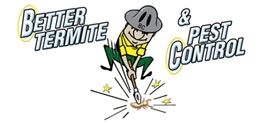How To Choose a Pest Control Company
When hiring a pest control company, you want to find the right one for you. Factors you may consider include licensing and qualifications, treatment methods, years of experience, customer reviews, and cost.
Below, we explore the details of each of these factors.
Does the company have a valid license and permits to perform pest control?
Per the United States Environmental Protection Agency (EPA), all pesticide applicators and those that supervise them need to be certified at the state level. The EPA does set minimum standards of competency, but all pesticide applicators in Virginia must be licensed through the proper state regulatory agencies.
Is the company a member of any professional organizations?
Pest control companies can also obtain optional certifications like the GreenPro Service Certification. This certification is granted once a company has shown that its treatment methods are more environmentally friendly and demonstrated that it also maintains certain other standards, such as up-to-date training for employees. A company can also earn other certifications from trade organizations like QualityPro to further verify its practices and methods.
A pest control company can also obtain membership in professional organizations. Membership in organizations such as the National Pest Management Association (NPMA) or state-level organizations is not required, but helps show that a company is reputable. When a pest control company joins the NPMA, it gains access to education, resources, and a network of other professionals with whom to discuss methods and practices.
Professional Experience and Specialties
You can get some insight into a company's level of experience by finding out how many years it has been in business. Local reviews and the company's own website can also clue you in as to whether a company has experience dealing with the specific species of pests invading your home. You can always contact the company directly to learn this information if you can't find it online.
Reviews and Recommendations
You can look up a company's reviews and rating on the Better Business Bureau (BBB), read social media and local review sites to see what others in your area have to say, or verify its license standing through the Virginia licensing board.
Cost of Services and Guarantees
Cost is important when hiring a pest control company. Cost can be affected influenced by the size of your house, your location, the type of pest being treated, and other factors.
Many companies offer free on-site estimates as part of their process, to help you decide whether it fits into your budget. You can also ask whether a company offers a satisfaction guarantees, meaning that it will continue to treat your pest problem until it is solved.
Safety and Treatment Methods
Your choice of pest control company might be influenced by how environmentally friendly a company's practices are, in addition to how safe its methods are around your family and pets.
Safety
Your pest control technician should be able to discuss the safety of the pesticides they plan to use. They should be able to clarify whether the pesticides are low toxicity or non-toxic, and if not what safety precautions they plan to use to protect your family, your pets, and you. Any pesticides that pose above a minimum risk are required to be registered with the EPA.
Treatment Methods
It is now common for companies to start with more environmentally friendly options before using harsh pesticides, using a technique called Integrated Pest Management (IPM). When using IPM, the following steps are taken:
- Identify the source of the pest problem and assess whether immediate action is needed.
- Decide on the safest course of action.
- Use a combination of biological, cultural, mechanical, and physical controls to manage the pest problem.
- Use chemical controls only when absolutely necessary, and always with other methods for effective long-term pest management.
- Observe the results and continue with additional pest control as needed.
















